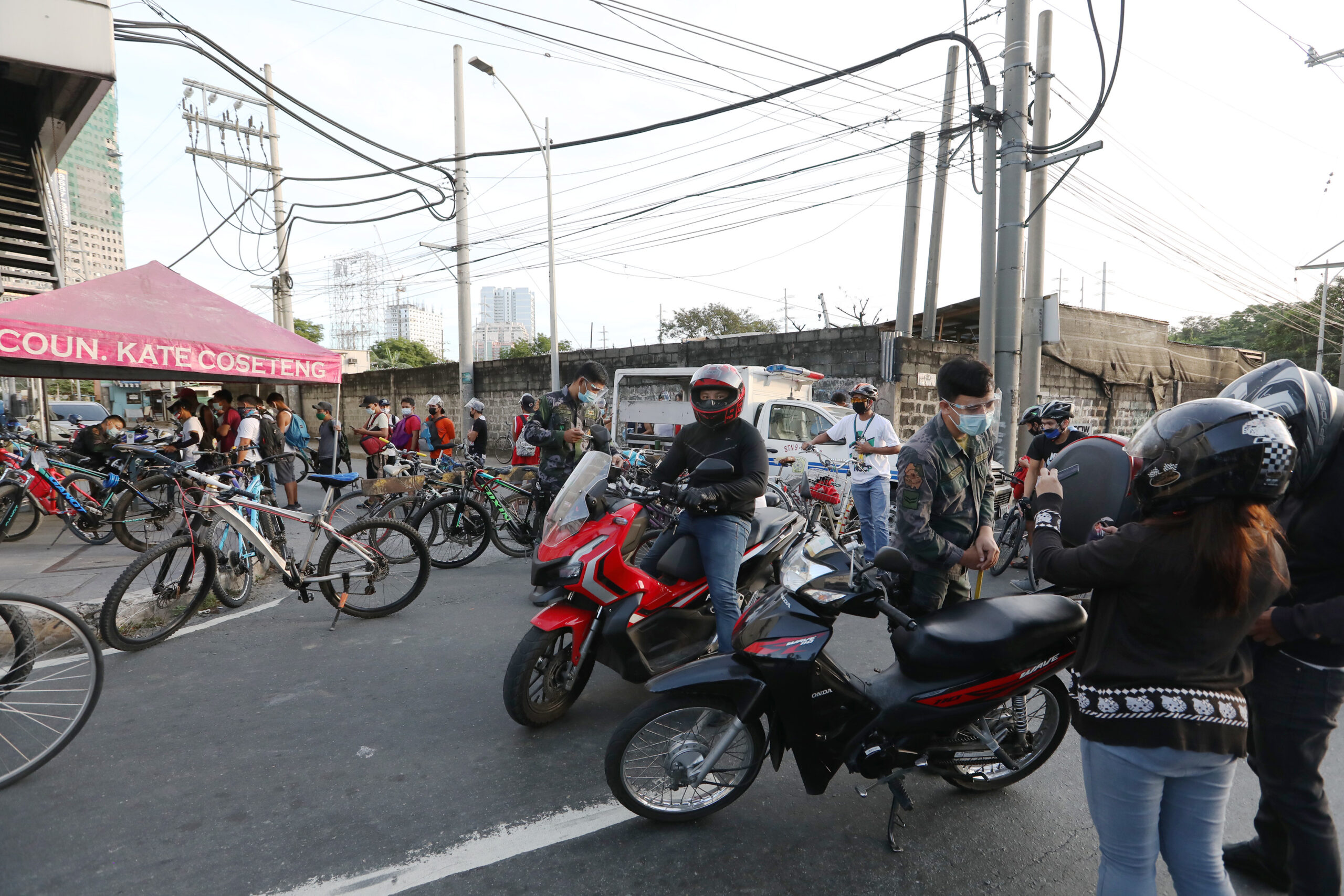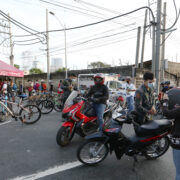
Metro Manila, surrounding areas under quarantine until April 4
EXTENDING the enhanced community quarantine (ECQ) over Metro Manila and its nearby provinces is an “absolute last resort,” according to Malacañang.
Presidential Spokesperson Harry Roque on Tuesday, March 30, made the statement, noting that the Inter-Agency Task Force (IATF) for the Management of Emerging Infectious Diseases will meet on Saturday, April 3 to decide whether the ECQ in the National Capital Region and other areas will be extended or lifted.
“Sa mga nagtatanong naman po kung maextend pa ang ECQ, pinagiisipan po itong mabuti ng inyong IATF at sa Sabado po, Black Saturday, ay meron kami muling pagpupulong para po isapinal kung ano ang mangyayari. Pero sinabi ko na po ito, another week or two weeks of [ECQ] yan po ay magiging absolute last resort (To those asking if the ECQ will be extended, the IATF is carefully thinking about this, and on Black Saturday, we will have a meeting to finalize what will happen. I already said this, another week or two weeks of ECQ, that will be the absolute last resort),” he said in a Palace briefing.
“Inaasahan po natin na ang isang linggong ECQ na nangyari matapos po ang isang linggo ng NCR Plus bubble, kasama po ng mask, hugas, iwas, at kasama po yung maigting na pagbabahay bahay ng paghahanap ng merong sintomas at mas pinaigting na testing and isolation, umaasa po tayo na sana po, hindi na kinakailangan mag-ECQ (We expect that the one-week ECQ after a week-long enforcement of the NCR Plus bubble, along with the practice of wearing masks, handwashing, looking for people with symptoms and boosting the testing and isolation, we are hoping that we won’t need another ECQ),” he added.
Roque also said that the government’s first option is to reopen the economy.
“The first option po is actually to resort to reopening the economy if possible ‘no kasi alam naman natin itong ayudang binibigay natin is stop gap. Hindi naman po talaga ‘yan para sa total health ng ating mga kababayan (The first option is actually to resort to reopening the economy if possible because we know that the cash assistance we’re giving is a stop gap. This is not for the total health of our fellowmen),” he said.
“It is just to let them survive from meal to meal. So, mas importante po mabigyan ng pagkakataong makapagtrabaho ang lahat (it is more important to give everyone a chance to work),” added Roque.
For his part, the country’s vaccine czar Carlito Galvez Jr. said the IATF is open to the recommendation of health experts to extend the ECQ in NCR Plus.
“If we see a continuous steep rise, an exponential increase, if cases do not plateau or go down, that means we have to complete the intervention we are having. We are open to the recommendation of our expert to extend it to 14 days because they said the inoculation period of the virus is 14 days,” he said.
Earlier, the Philippine Department of Health (DOH) recommended a week-long extension of ECQ in NCR Plus.
“Extension for another week was recommended but nothing is final and IATF works in a whole of government approach. There will be an assessment of the progress before ECQ ends,” Health Undersecretary Maria Rosario Vergeire told the media in a Viber message.
Philippine President Rodrigo Duterte over the weekend placed Metro Manila, Rizal, Bulacan, Cavite, and Laguna under enhanced community quarantine (ECQ) from March 29 to April 4 due to the surge in COVID-19 cases in the country.
Under the ECQ, individuals aged below 18 and above 65, pregnant women, and those with immunodeficiencies, comorbidity, or other health risks will not be allowed to go out.
An intensified curfew from 6 p.m. to 5 a.m. will be implemented imposed over the entire NCR Plus. Exempted from the curfew are Authorized Persons Outside Residence (APOR), those accessing essential goods and services, and workers in establishments allowed to operate.
Mass gatherings of more than 10 people and religious gatherings are prohibited. Dining in at restaurants will not be allowed.
On the other hand, public transportation will continue to operate at limited capacity.
Some essential and priority construction projects are also allowed to resume provided they follow the guidelines issued by the Philippine Department of Public Works and Highways.
Essential industries such as hospitals, frontline services, agricultural activities, and delivery services transporting food, medicine, and essential goods can operate at full capacity under ECQ, while private establishments and the media can operate at 50% capacity.
Other establishments such as dental clinics, optometry clinics, pharmacies, veterinary clinics, banks, money transfer services, telecommunications companies, manufacturing firms, funeral and embalming services, and security personnel are tasked to adopt a skeleton workforce.






